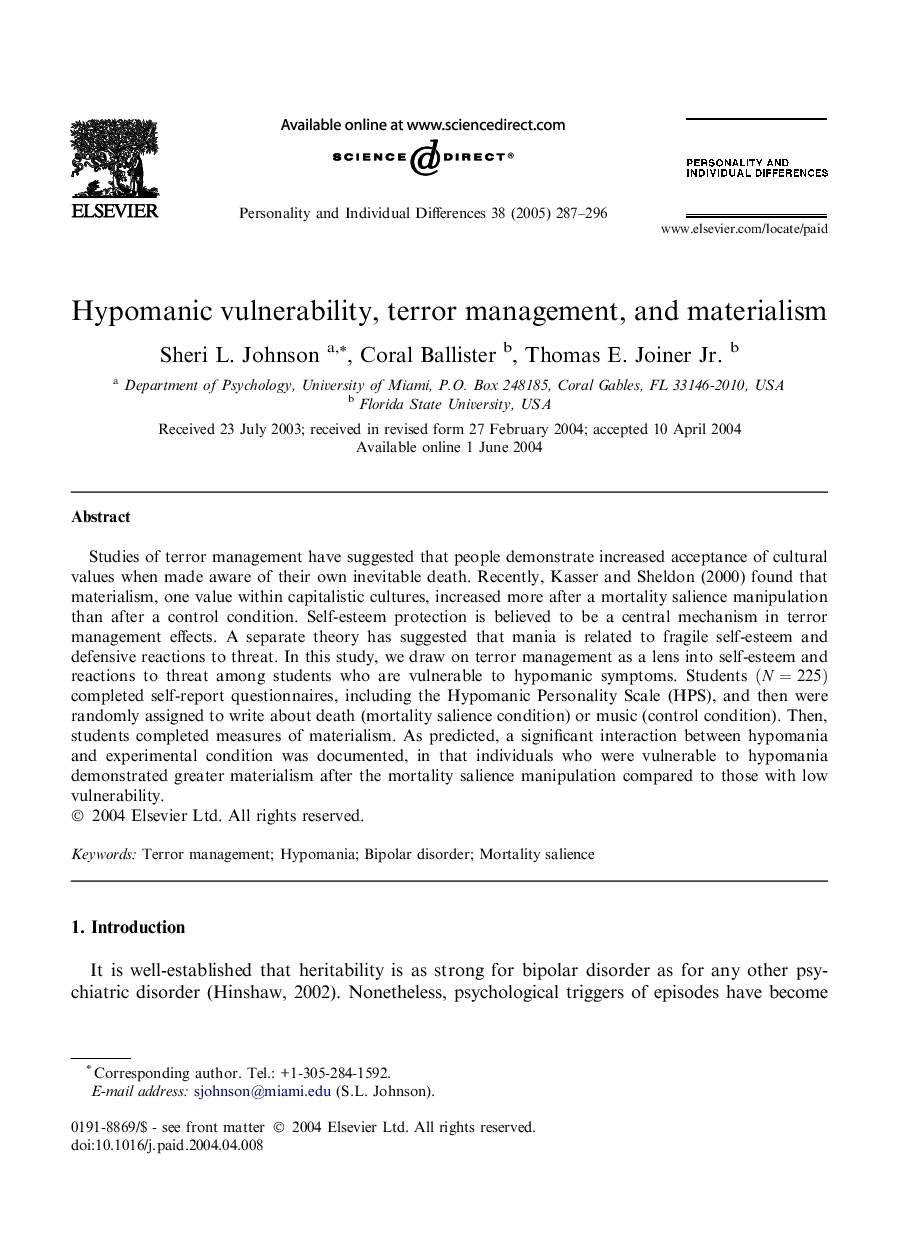| Article ID | Journal | Published Year | Pages | File Type |
|---|---|---|---|---|
| 10441115 | Personality and Individual Differences | 2005 | 10 Pages |
Abstract
Studies of terror management have suggested that people demonstrate increased acceptance of cultural values when made aware of their own inevitable death. Recently, Kasser and Sheldon (2000) found that materialism, one value within capitalistic cultures, increased more after a mortality salience manipulation than after a control condition. Self-esteem protection is believed to be a central mechanism in terror management effects. A separate theory has suggested that mania is related to fragile self-esteem and defensive reactions to threat. In this study, we draw on terror management as a lens into self-esteem and reactions to threat among students who are vulnerable to hypomanic symptoms. Students (N=225) completed self-report questionnaires, including the Hypomanic Personality Scale (HPS), and then were randomly assigned to write about death (mortality salience condition) or music (control condition). Then, students completed measures of materialism. As predicted, a significant interaction between hypomania and experimental condition was documented, in that individuals who were vulnerable to hypomania demonstrated greater materialism after the mortality salience manipulation compared to those with low vulnerability.
Related Topics
Life Sciences
Neuroscience
Behavioral Neuroscience
Authors
Sheri L. Johnson, Coral Ballister, Thomas E. Jr.,
